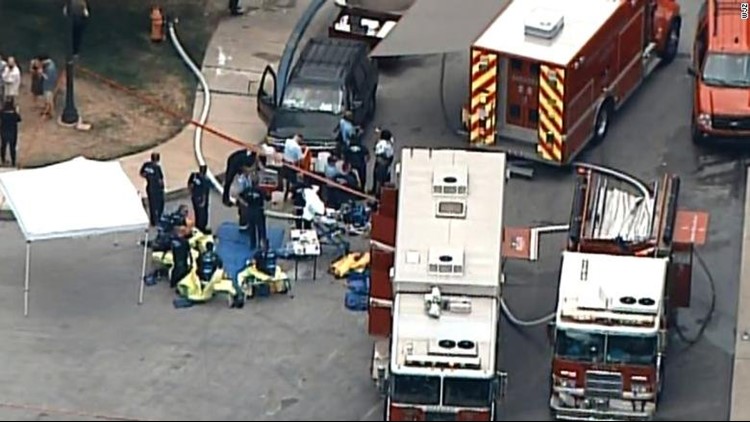Authorities responded to reports that a small amount of tuberculosis bacteria may have been released at Johns Hopkins Hospital in Baltimore on Thursday afternoon, according to Johns Hopkins Medicine.
The Baltimore City Fire Department investigated after a small tube containing a frozen sample of the bacteria was dropped on an internal bridge between two cancer research buildings, according to the hospital. Both buildings were evacuated, and employees in the vicinity were isolated and were to be evaluated by the fire department, hospital spokeswoman Kim Hoppe said.
But hospital authorities later said that there was “zero risk” to patients and hospital personnel and that testing would not occur.
“There was a small tube that contained a frozen sample and it was dropped and the lid came off while the sample was still frozen inside,” said Dr. Landon King, executive vice dean at the Johns Hopkins School of Medicine.
“In fact, we have determined that there is actually no risk, meaning zero risk, to anybody involved,” King said. “So there is no preventive measure or testing that’s required for anyone in the buildings or on the campus as a result of this event.”
Tuberculosis bacteria are spread through the air when an infected person coughs, sneezes or spits, and someone else can breathe in the bacteria and become sick. It’s possible to be infected with TB without getting ill, in which case it can still be spread.
Symptoms include coughing up blood, fever, chills, night sweats, shortness of breath, chest pains, weight loss and fatigue. Treatment with antibiotics for four to nine months is required to treat the active disease.
In 2016, 10.4 million people around the world developed TB illness, and there were 1.7 million deaths, according to the US Centers for Disease Control and Prevention. That same year, 9.272 cases were reported in the United States, and provisional data from 2017 found 9,093 cases.



